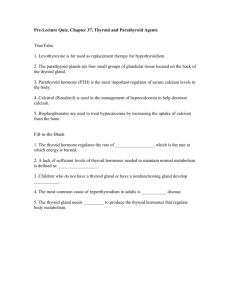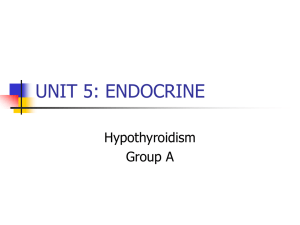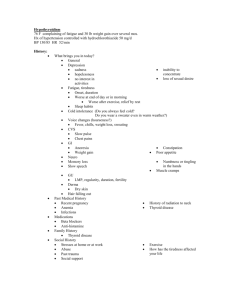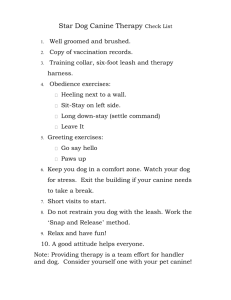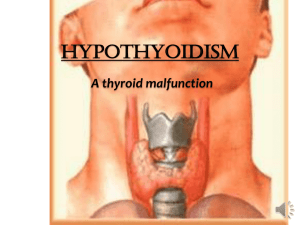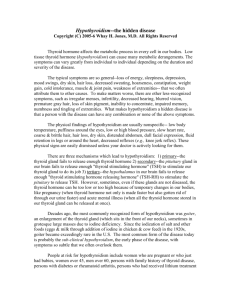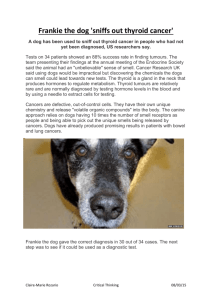Canine Hypothyroidism
advertisement
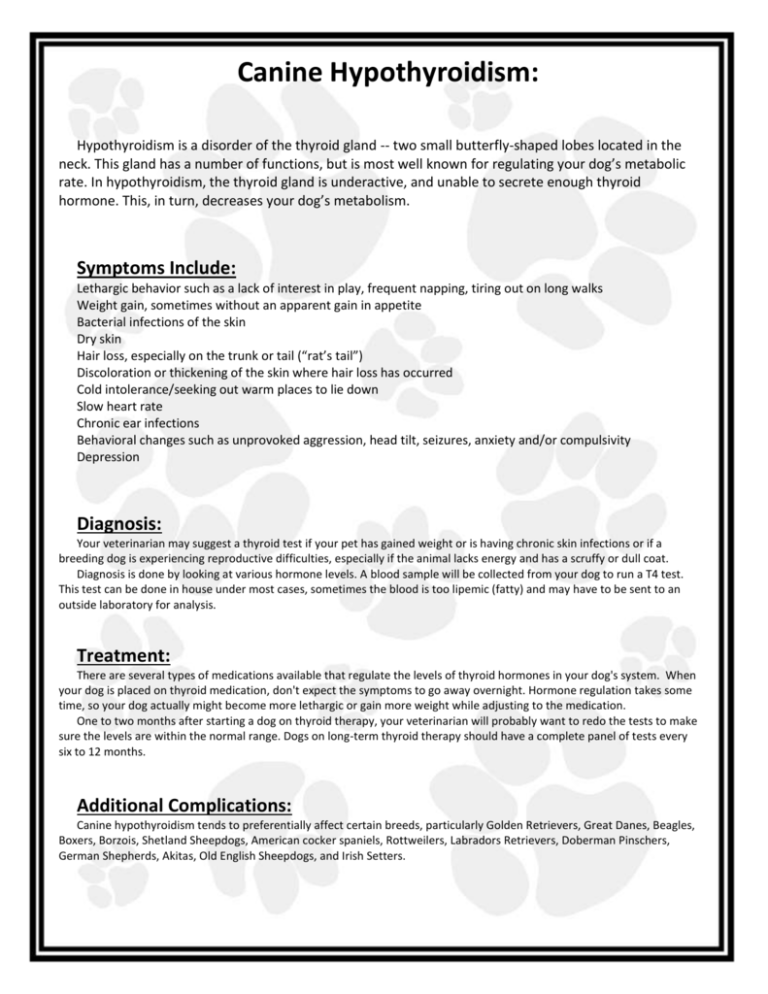
Canine Hypothyroidism: Hypothyroidism is a disorder of the thyroid gland -- two small butterfly-shaped lobes located in the neck. This gland has a number of functions, but is most well known for regulating your dog’s metabolic rate. In hypothyroidism, the thyroid gland is underactive, and unable to secrete enough thyroid hormone. This, in turn, decreases your dog’s metabolism. Symptoms Include: Lethargic behavior such as a lack of interest in play, frequent napping, tiring out on long walks Weight gain, sometimes without an apparent gain in appetite Bacterial infections of the skin Dry skin Hair loss, especially on the trunk or tail (“rat’s tail”) Discoloration or thickening of the skin where hair loss has occurred Cold intolerance/seeking out warm places to lie down Slow heart rate Chronic ear infections Behavioral changes such as unprovoked aggression, head tilt, seizures, anxiety and/or compulsivity Depression Diagnosis: Your veterinarian may suggest a thyroid test if your pet has gained weight or is having chronic skin infections or if a breeding dog is experiencing reproductive difficulties, especially if the animal lacks energy and has a scruffy or dull coat. Diagnosis is done by looking at various hormone levels. A blood sample will be collected from your dog to run a T4 test. This test can be done in house under most cases, sometimes the blood is too lipemic (fatty) and may have to be sent to an outside laboratory for analysis. Treatment: There are several types of medications available that regulate the levels of thyroid hormones in your dog's system. When your dog is placed on thyroid medication, don't expect the symptoms to go away overnight. Hormone regulation takes some time, so your dog actually might become more lethargic or gain more weight while adjusting to the medication. One to two months after starting a dog on thyroid therapy, your veterinarian will probably want to redo the tests to make sure the levels are within the normal range. Dogs on long-term thyroid therapy should have a complete panel of tests every six to 12 months. Additional Complications: Canine hypothyroidism tends to preferentially affect certain breeds, particularly Golden Retrievers, Great Danes, Beagles, Boxers, Borzois, Shetland Sheepdogs, American cocker spaniels, Rottweilers, Labradors Retrievers, Doberman Pinschers, German Shepherds, Akitas, Old English Sheepdogs, and Irish Setters.
